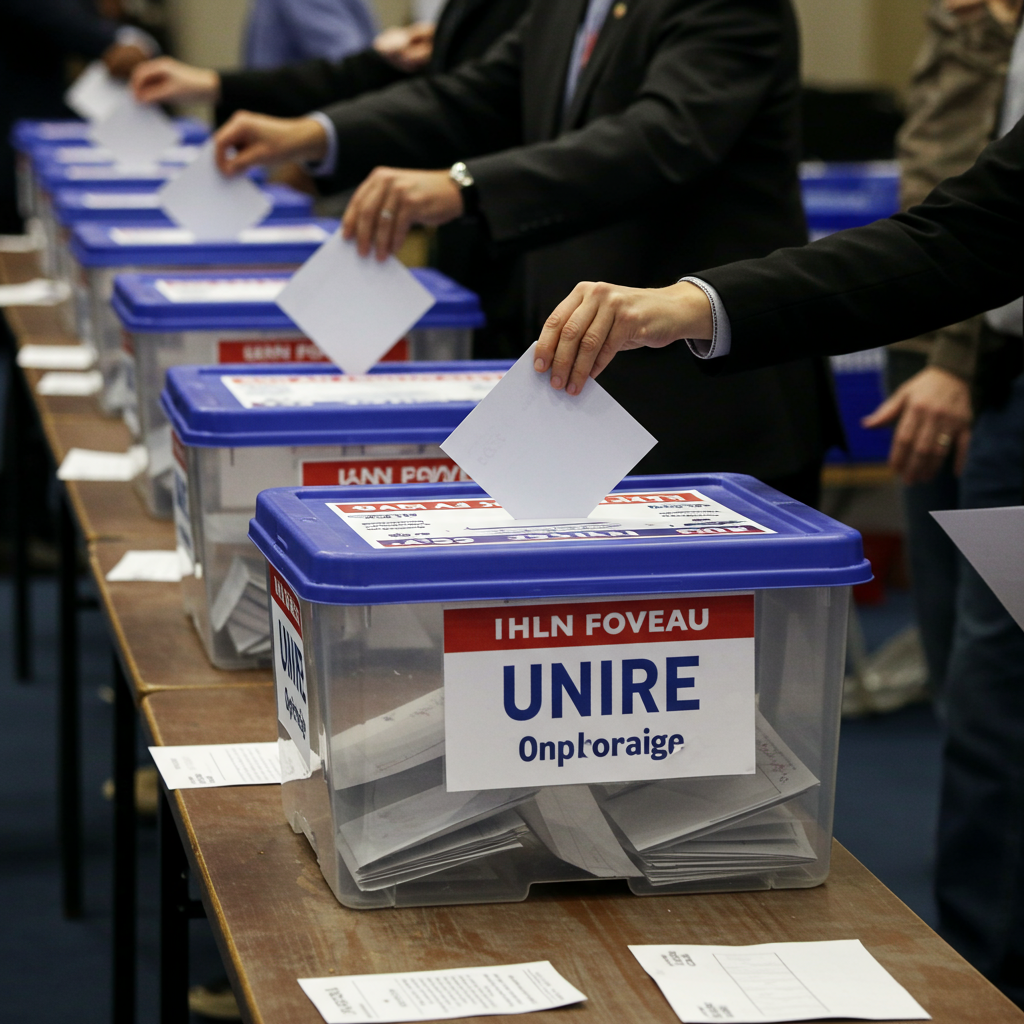Supreme Court Clears Way for Trump to Resume Contested Migrant Deportations
The U.S. Supreme Court has granted the Trump administration a significant victory in its aggressive immigration enforcement efforts, lifting a lower court order that restricted the government’s ability to deport migrants to countries other than their own without first providing them a specific opportunity to voice fears of harm.
In an emergency action decided on June 23, the nation’s highest court cleared the path for these “third-country” removals to resume while a legal challenge against the policy continues. The ruling overturns, for now, a judicial requirement that migrants facing deportation to such destinations receive notice and a “meaningful opportunity” to tell U.S. officials they could face torture or other severe harms upon arrival.
The brief, unsigned order from the conservative-majority court (6-3) offered no immediate reasoning, which is standard practice for emergency appeals.
Sharp Dissent from Liberal Justices
The decision drew a fierce dissent from the court’s three liberal justices, Sonia Sotomayor, Elena Kagan, and Ketanji Brown Jackson. Justice Sotomayor, writing for the dissenters, called the majority’s action a “gross abuse” of its power and “as incomprehensible as it is inexcusable.”
She argued the court seemed to find the prospect of “thousands [suffering] violence in far-flung locales more palatable than the remote possibility that a District Court exceeded its remedial powers.” Sotomayor contended that the migrants are constitutionally and statutorily entitled to notice and due process. She also pointed to instances where she believed the administration had previously disregarded court orders, warning that the court “rewarding noncompliance with discretionary relief, it further erodes respect for courts and for the rule of law.”
The Lower Court’s Restriction
The lifted order was issued by Boston-based U.S. District Judge Brian Murphy on April 18. Judge Murphy had found that the administration’s practice of deporting migrants to third countries “without providing notice and a meaningful opportunity to present fear-based claims” likely violated the U.S. Constitution’s due process protections. His ruling sought to implement a “small modicum of process” he deemed necessary, citing a previous Supreme Court decision affirming non-citizens’ right to due process.
Judge Murphy reinforced his order on May 21, specifically finding the administration in violation for attempting to deport a group of migrants to politically unstable South Sudan without adhering to his mandated procedures. The U.S. State Department advises against travel to South Sudan due to severe risks including crime and conflict. Following the judge’s intervention, migrants on that planned flight were held at a military base in Djibouti, though one man was later deported to his home country of Myanmar, while others were from South Sudan, Cuba, Mexico, Laos, and Vietnam.
Administration Argued Against ‘Onerous’ Procedures
The Trump administration had asked the Supreme Court to intervene after a federal appeals court declined to block Judge Murphy’s order on May 16. Through Solicitor General John Sauer, the administration argued to the Supreme Court that the lower court’s requirements imposed an “onerous set of procedures” that created a “diplomatic and logistical morass.”
The administration contended that the injunction inflicted “significant and irreparable harm” on its efforts to remove migrants, particularly those they described as “criminal aliens,” claiming it hindered their ability to remove individuals “most deserving of removal.” They argued that their existing process already complied with due process requirements and that the migrants subject to these removals had already received adequate process and final removal orders. The administration also argued that Judge Murphy’s order offered “little but delay,” primarily benefiting migrants seeking to stall removal, and disrupted sensitive diplomatic negotiations.
Following the Supreme Court’s decision, White House spokesperson Abigail Jackson stated the ruling reaffirmed the president’s authority to remove “criminal illegal aliens,” helping to “Make America Safe Again.” Department of Homeland Security Assistant Secretary Tricia McLaughlin reportedly remarked, “Fire up the deportation planes.”
Advocates Call Ruling ‘Horrifying’
Immigrant rights groups representing the plaintiffs in the class action lawsuit sharply criticized the Supreme Court’s decision. Trina Realmuto, executive director of the National Immigration Litigation Alliance, described the ramifications as “horrifying,” stating the ruling stripped away “critical due process protections that have been protecting our class members from torture and death.”
Advocates countered the administration’s claims that all affected migrants were dangerous criminals, noting that many had no criminal convictions and emphasizing that even those with serious convictions are legally entitled to basic human rights protections against torture. They argued the government has repeatedly sought to remove people punitively to dangerous places with little notice, citing an example of a Guatemalan man deported to Mexico who was later ordered returned by Judge Murphy after the Justice Department admitted he had wrongly been sent there without addressing his fear.
While calling the Supreme Court’s decision an intermediate setback, the migrants’ attorneys expressed their intent to swiftly conclude the underlying case in the lower courts to restore the protections.
Part of Broader Legal Battles
The Supreme Court’s ruling is the latest in a series of legal clashes over the Trump administration’s immigration policies to reach the high court since he returned to office. These cases often involve complex questions surrounding migrants’ rights, the extent of the executive branch’s authority, and the power of federal judges to issue nationwide injunctions that block government actions – a broader issue the Court is increasingly considering.
While the Supreme Court previously affirmed that non-citizens on U.S. soil are generally entitled to due process, including notice and an opportunity to be heard, the specifics of what constitutes adequate “notice” and “hearing” in different immigration contexts remain hotly debated in the courts. The administration has previously considered or implemented removals to other challenging destinations, including sending non-Salvadorans to a large prison in El Salvador and reports of considering deportations to Libya, despite concerns about treatment of detainees there.
The Supreme Court’s emergency order allows the administration’s third-country deportation policy to continue without the specific due process safeguards mandated by the lower court, at least while the core legal challenge proceeds through the judicial system.



